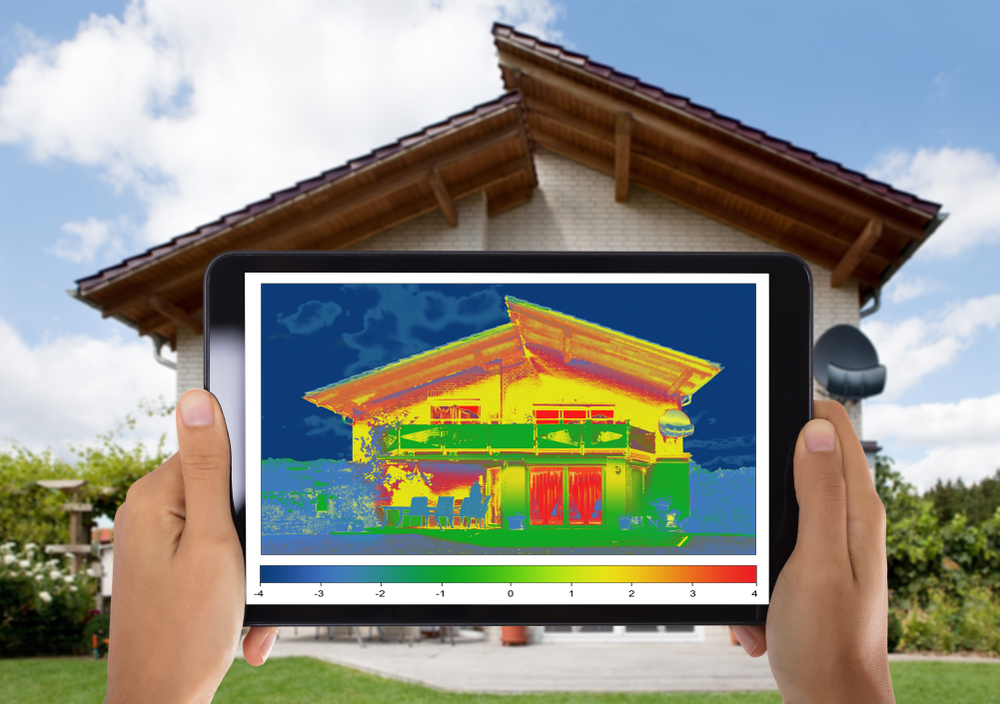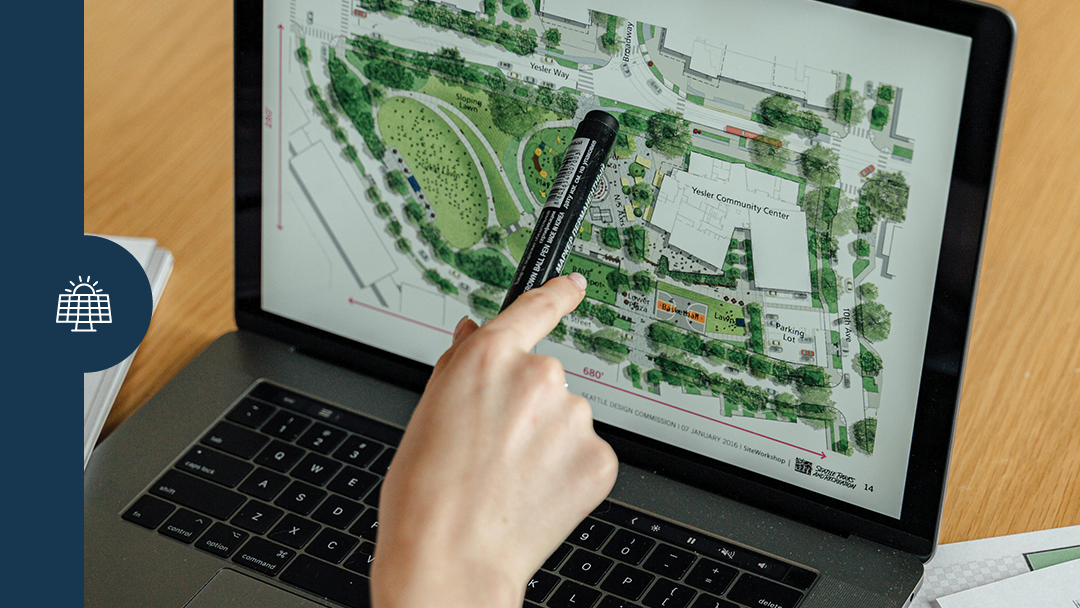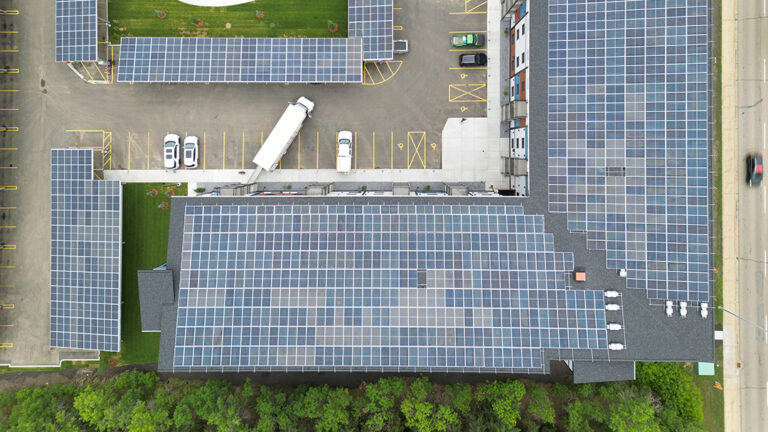While we now know housing plays a significant role in carbon emissions, many community housing providers are confused about steps to take to reverse the trend. Concerned with rising energy prices and renovation costs, groups turn to the Centre’s regional energy coaches for valuable, free of charge, expertise.
By Jeanne Lemba
Rising temperatures, longer droughts and mercurial storms are all signs of a changing climate. World scientists present a lot of options to curb the trend and the consensus is clear that the energy needed to heat, cool and light our homes is responsible for nearly 40 per cent of global carbon emissions.
While experts suggest it is more eco-friendly to renovate existing housing rather than demolish and build new, Hope Jamieson, program manager and regional energy coach at the Community Housing Transformation Centre, says it isn’t always a concern for the environment that draws people to retrofit their building.
“When I talk to groups for the first time, [they are not saying] ‘We want to improve our energy efficiency, or we want to be more environmentally friendly,’ [they are saying] ‘Our buildings are falling apart, or our tenants are cold or we’re spending a thousand dollars a month on heat for this one single-family home.’”
Addressing signs of a poorly insulated building can seem daunting—but it doesn’t have to be. According to fellow program manager and regional energy coach Chris Rootsaert, small updates to a home’s structure could mean quick savings in terms of energy used, and money spent.
“There are easy wins that a lot of groups can get right off the bat. [Like] addressing seals around doors and windows or learning about how different types of light bulbs will affect your energy efficiency. You’ll start saving very quickly.”
As regional energy coaches (RECs), Jamieson and Rootsaert work to help community housing providers, or individuals, find answers on retrofitting their building, or simply planning ahead.
And it all starts with a walk.
One step, one stage at a time
RECs provide virtual walk-through energy assessments—free of charge—to community housing providers throughout Canada. Through a tour of a building, Jamieson and Rootsaert compile information about energy-saving opportunities.
“I was approached by a group that had a very old building, and it had a lot of great opportunities for green retrofit improvements,” says Rootsaert. “We did a virtual walk through, and in this case, the building had windows that were over a hundred years old, and so it needed new windows, but also, certain plumbing parts needed to be updated [as well as] faucets for more efficient water usage in their bathrooms.”
The virtual assessment raised more questions: how are the building systems in the bottom of the building? What about the number of water tanks? How is the heating situation? Are there any drafts in the building? Are the doors adequately sealed?
But the coaching doesn’t end at finding things that require fixing, participants are directed to resources and suggested follow-up steps, such as funding and incentive programs.
“[The walk-through energy assessment] gets the conversation going,” adds Rootsaert. “This [particular] group already knew that they had a larger capital project on the plate and so they were planning to approach FCM [for funding] but they weren’t sure how.”
This assessment is often used as the first step in accessing funding from the Federation of Canadian Municipalities’ Sustainable Affordable Housing offer.
The Sustainable Affordable Housing (SAH) initiative offers support to municipalities and other affordable housing providers—including municipal, not-for-profit organizations and housing co-ops—to retrofit existing affordable housing units, or construct energy-efficient new builds that emit lower greenhouse gas (GHG) emissions. The $300 million fund was set up to offset the cost at all project stages, including planning, study, There is also money for pilot projects.
As part of the Centre’s partnership with the Federation of Canadian Municipalities (FCM), regional energy coaches recommend whether to go ahead with an application for funding and they often help organizations in the preparation of a business case.
Energy coaching for all
However, Jamieson says not all participating groups plan to invest in renovation, some don’t even have a building: RECs are there to help organizations at any stage of the journey to becoming a provider of energy-efficient, affordable housing.
“The REC program is a long-term relationship. We work with groups from the ‘germ of an idea’ stage right up to the realization of a capital project,” stresses Jamieson.
“What I want people to know is that they don’t need to have a knowledge base in this stuff to make first contact. And they don’t even need to have a building or an incorporated organization. They just need to have an idea.”
While many cash-strapped community housing providers already viewed retrofitting as an elusive goal, the soaring cost for many of the common building materials, like lumber, combined with a pandemic-induced home renovation frenzy, have caused prices to skyrocket over the past year.
Jamieson and Rootsaert understand their concerns.
“In a lot of cases, we can identify low-or-no cost improvements,” explains Jamieson. “Even if the group isn’t considering a big capital project, there still can be benefit to [contacting us] just to take a baseline of where they’re at right now in terms of the condition of their asset, but also what kind of simple actions they can take to reduce their energy footprint and save some money and increase the comfort of their tenants.”
Jamieson says it is the groups who often don’t think they can afford a retrofit, or need one just yet, that find unexpected value in the free program.
“People don’t need to have a knowledge base in this stuff to make first contact. We really try to meet people where they’re at in terms of their knowledge base, and we have developed a real skill in describing these things in plain language and working with groups to figure out how this stuff fits into their plans.”
To learn more about the regional energy coach program, or to discuss a potential project, please reach out to Hope Jamieson at h.jamieson(a)centre.support or Chris Rootsaert at c.rootsaert(a)centre.support




